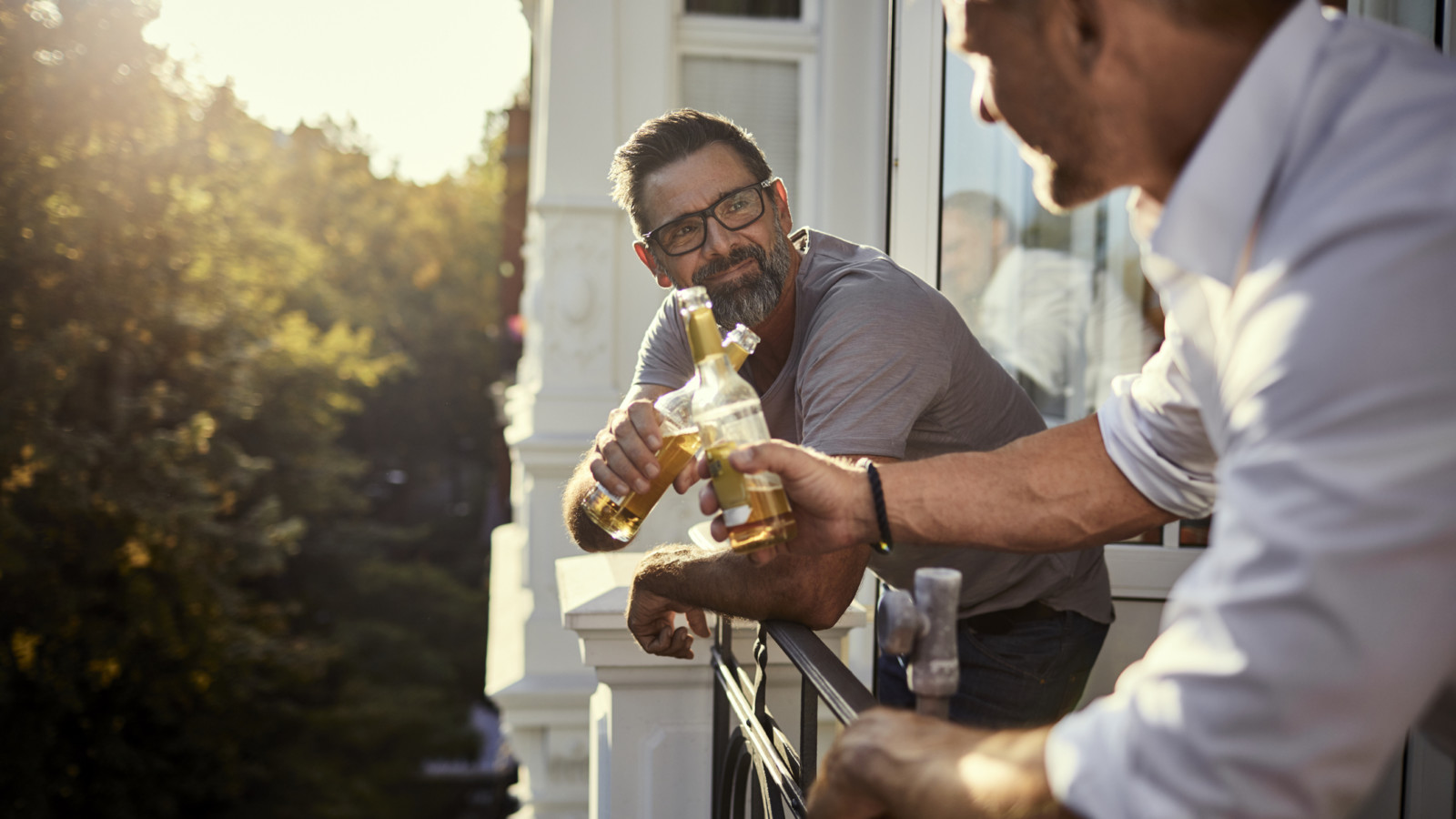I was chatting with another parent at school pickup about her career. She and her husband had just given up their secure jobs in finance to start a business together, which meant they were spending a lot more time together. I asked her how she was dealing with this sudden togetherness, to which she offered one word: wine.
We live in an alcohol-soaked society. You almost can’t escape its presence and temptation. It flows at workplace events, sporting games, and family picnics, and #daydrinking is a thing because, hey, it’s five o’clock somewhere. Alcohol has even nosed in on gatherings that you wouldn’t typically associate with getting tipsy, such as playdates and kids’ birthday parties.
It’s our primary social lubricant and has become the critical test for US voters when casting their ballot for president: Do I want to have a beer with that candidate? The better question I’d like you to consider is “How is my drinking impacting my Downstate?”
Being married to a person who doesn’t drink alcohol has given me an opportunity to interrogate my own relationship with drinking. Before Emily, I always drank a glass or two of wine or beer at the end of a long, tiring day—sometimes with friends at a pub, sometimes while making my kids dinner, sometimes after putting them to bed, with the rest of the night my own to privately slip away. I didn’t think about why I drank, or whether it was necessary; I simply got into the habit of using alcohol to check out after being checked in all day. But, living with Emily, who, she says, quit drinking to save her life when she was twenty-four years old, forced me to question what I was doing. Why was I doing it? Did I need this drink right now or had I just let the rhythm of “It’s five p.m. somewhere” take hold of my evenings? Was this drink replacing something missing in my life?
The first thing I noticed was that I was exhausted, and that when the end of the workday would finally arrive and the long night of parenting would then begin, I felt completely depleted and without the energy I needed to show up for them. It surprised me to realize that it was from this already wasted state that the desire to drink would arise. Opening the fridge to grab a can of beer, I was reaching for a numbing device that would take me from tired to not caring, from low battery to oblivion. I heard a voice inside my head say, “I am an adult and drinking is perfectly legal, especially in my own home. I work hard and this is my right. Mother knows best.”
For many of us, alcohol has become a replacement for the Downstate. We work ourselves to the limit of our daily resources, until there is nothing left; yet we still have hours of service at home before we can fall into the void of sleep, and that void isn’t even guaranteed. This doesn’t work—we can’t produce energy we don’t have, and this makes us feel bad, inadequate, and overextended. So, we search for a buffer to put between us and our bad feelings, us and the noise, us and the demands; a way to cut ourselves off from the intimacy of the moment, the immediacy of human relations.
Alcohol is one answer, taking the edge off the sharp stings of need. Though it may feel like a liquid Downstate, the problem with using it as a replacement for your natural restorative practices is the mission creep of this drug. As the F. Scott Fitzgerald quote goes, “First, you take a drink, then the drink takes a drink, then the drink takes you.”28 And, over time, numbing out requires more and more alcohol to do the trick, not to mention the hell it wreaks on your sleep.
Ask yourself one question: If your Upstates and Downstates were in the right ratio, would you need that drink? If you had had a full night’s sleep, woke up in the morning to the sun in your face, made time for a workout or a lunchtime walk with a friend, ate healthy meals, and took a five- to ten-minute break during your day for some deep breathing, how would you feel at five p.m.? Would you need that beer or could you take a trip to the park to throw a ball around, spend some time in the garden, or practice a new hobby?
I spoke with artist Melora Kuhn about her relationship with alcohol. She stopped drinking eight months after her mother died because she felt numb and realized that she had been drinking nearly every night for the past twenty-five years. Along with dropping 10 pounds in the first month, she noticed many deeper, inward changes. She rediscovered her love of reading, starting with bell hooks’ All About Love: New Visions, followed by every book hooks referenced therein. “Some days I would spend all day reading and skip painting in my studio altogether,” she told me.
Without the nightly blurring of her mind with alcohol, her attention and endurance began to build, and she “started to feel like a scholar—reading, taking notes, digging deeper, writing, unpacking my own story by others’ accounts, and really waking up.” After about nine months of sobriety, she said she still felt “like a little pink nub of pure sensitivity, but the effects have been amazing. My skin is brighter, the bags under my eyes are less, and the fat under my chin is seriously reduced! My sleep is deeper, and generally uninterrupted, and I am more able to engage from a center I had a hard time contacting before. Not drinking has lifted a veil and been a practice in understanding why I drank and what it was encouraging me to avoid.”
You don’t have to give up alcohol entirely to become a Downstate Maven. You do, however, need to become conscious of your actions and discern those that are helping you maintain that vital Upstate/Downstate ratio, versus those that are hurting. It means mindfully choosing what is right for you in every moment.



